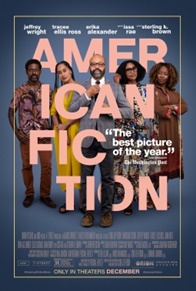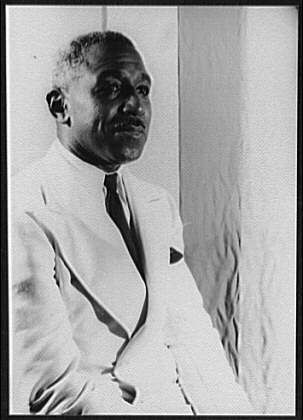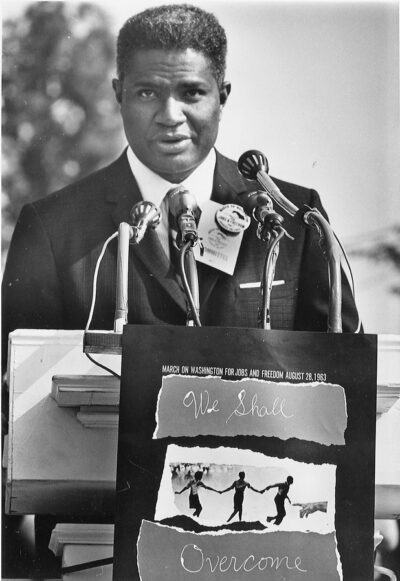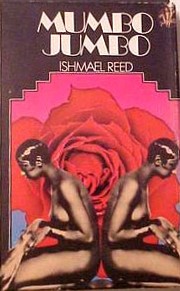This series by American studies professor Ben Railton explores the connections between America’s past and present.

As we continue to move through film awards season and toward the Oscars, one of the most nominated and acclaimed films of the year is American Fiction (2023), director Cord Jefferson’s satirical look at the publishing industry, pop culture, and race in America starring Jeffrey Wright as novelist Thelonious “Monk” Ellison. American Fiction is an adaptation of Erasure (2001), a novel by Percival Everett, one of the most prominent African American authors of the last half-century and a writer who has consistently produced satirical and humorous novels, including 2009’s I Am Not Sidney Poitier and 2004’s A History of the African-American People (Proposed) by Strom Thurmond, as told to Percival Everett and James Kincaid, as well as Erasure and many others.
Satire is one of the trickiest cultural genres, a form of art that asks an audience to laugh, cringe, and think in equal measure, and one that can all too easily be mistaken for the very things it is seeking to critique. It’s also a powerful tool for social commentary, perhaps especially for artists from minority communities looking to call out and challenge frustrating elements of their society. African American artists have long used satire in those ways, so for Black History Month here are a handful of significant such satires.
Black No More (1931)

The telling full title of journalist and author George S. Schuyler’s work of satirical science fiction about race in early 20th century America is Black No More: Being an Account of the Strange and Wonderful Workings of Science in the Land of the Free, A.D. 1933-1940. In this satire, Schuyler, an iconoclastic figure who would later offer scathing critiques of the Harlem Renaissance and the NAACP (among many other targets), imagines an African American scientist who has invented a process that turns Black people white, with no corner of American society and culture escaping the humorous and exaggerated yet pointed and critical effects.
Purlie Victorious (1961)

The actor and activist Ossie Davis was also a playwright, and his 1961 historical satire Purlie Victorious (A Non-Confederate Romp through the Cotton Patch), a comedic depiction of an African American traveling preacher returning to save his hometown church, was one of the most influential 20th century Broadway plays. Co-starring Davis’s lifelong romantic and creative partner Ruby Dee, that acclaimed 1961 staging of Purlie Victorious would inspire a 1963 film (retitled Gone Are the Days!), a 1970 musical, and a current revival starring Leslie Odom Jr. that finished its initial run on Broadway this past weekend.
Mumbo Jumbo (1972)

Few American artists have had as long and varied a career as Ishmael Reed, whose more than 50 years of published work includes countless novels, poetry collections, plays, essays, and musical collaborations, and who continues to produce important new work (as illustrated by his 2019 play The Haunting of Lin-Manuel Miranda, a bracing critique of the musical Hamilton). But for this reader no work of Reed’s, and indeed no published work of any kind in the last half-century, is more powerful than his novel Mumbo Jumbo, a satirical historical fiction set in an alternate-universe 1920s New York that brings together historical figures like President Warren Harding and W.E.B. Du Bois, supernatural elements including Voodoo and ancient Egyptian mythology, experimental use of images and music on the page, and much more.
Hollywood Shuffle (1987) and Bamboozled (2000)
Trailer for Hollywood Shuffle (Uploaded to YouTube by MGM)
American Fiction is far from the first African American cinematic satire, and its director Cord Jefferson has overtly acknowledged his debt to earlier satirical films like Robert Townsend’s Hollywood Shuffle and Spike Lee’s Bamboozled. Perhaps because those two films directly targeted the worlds of Hollywood and entertainment of which they were themselves part, or perhaps because audiences did not always recognize the satire for what it was and tried to take the films’ exaggerations and silliness seriously, they were both more controversial than American Fiction has proven to be. But the current success of American Fiction offers us a chance to revisit and rewatch these vital earlier works, both of which still have a great deal to tell us about our current pop culture and society.
Contemporary Novels and Collections
Percival Everett is one of a number of 21st century African American authors using satire to devastating effect. Just the last decade alone has seen such interesting and important satirical works as Paul Beatty’s novel The Sellout (2015), Nana Kwame Adjei-Brenyah’s short story collection Friday Black (2018), Nafissa Thompson-Spires’ collection Heads of the Colored People (2018), and Maurice Carlos Ruffin’s novel We Cast a Shadow (2019). Scholar Danielle Fuentes Morgan’s book Laughing to Keep from Dying: African-American Satire in the 21st Century (2020) puts these literary satires in conversation with the comic work of artists like Dave Chappelle, Donald Glover, Leslie Jones, and Key & Peele, reminding us that the legacy of African American satire has never been in better hands.
Become a Saturday Evening Post member and enjoy unlimited access. Subscribe now



